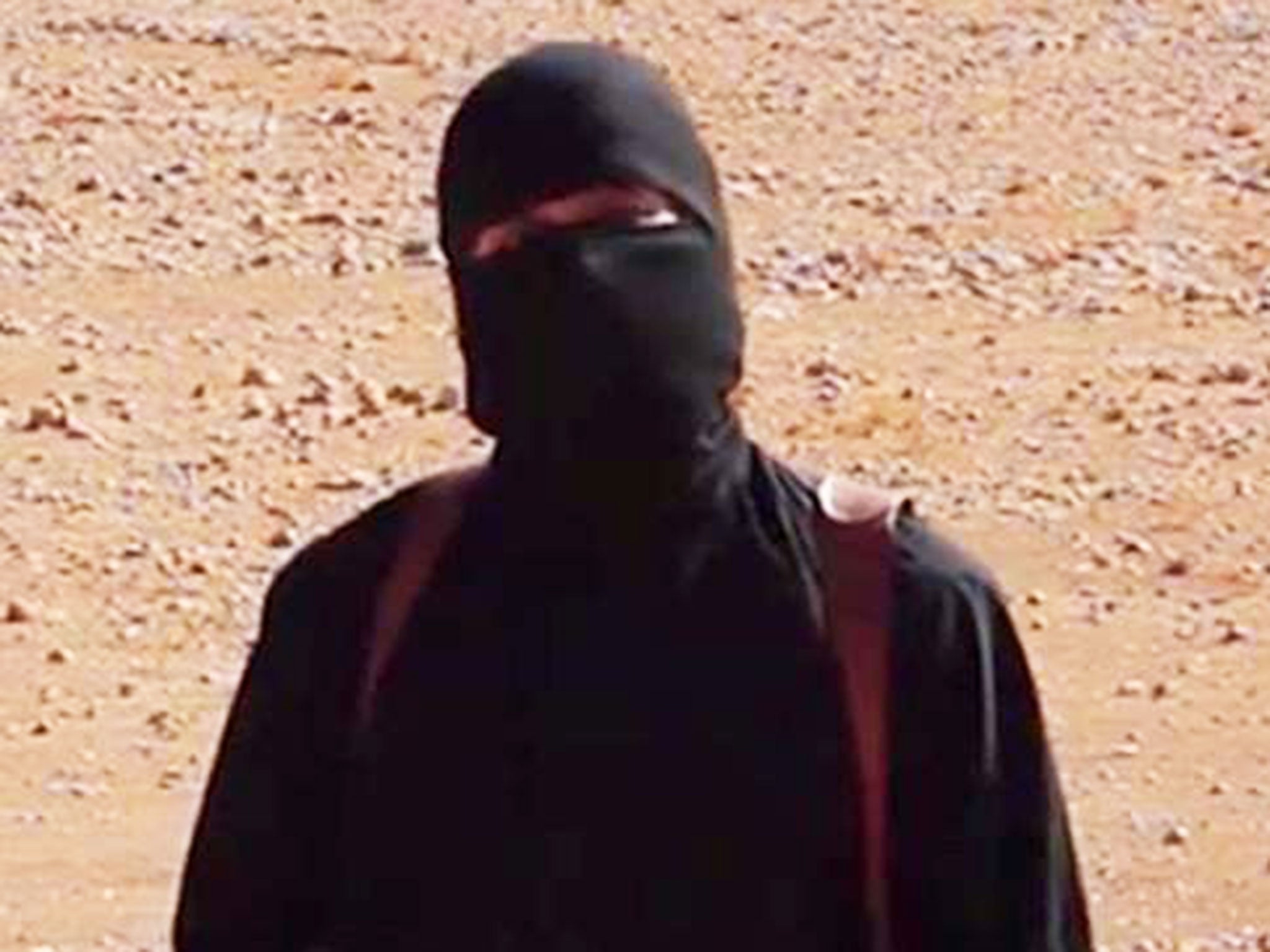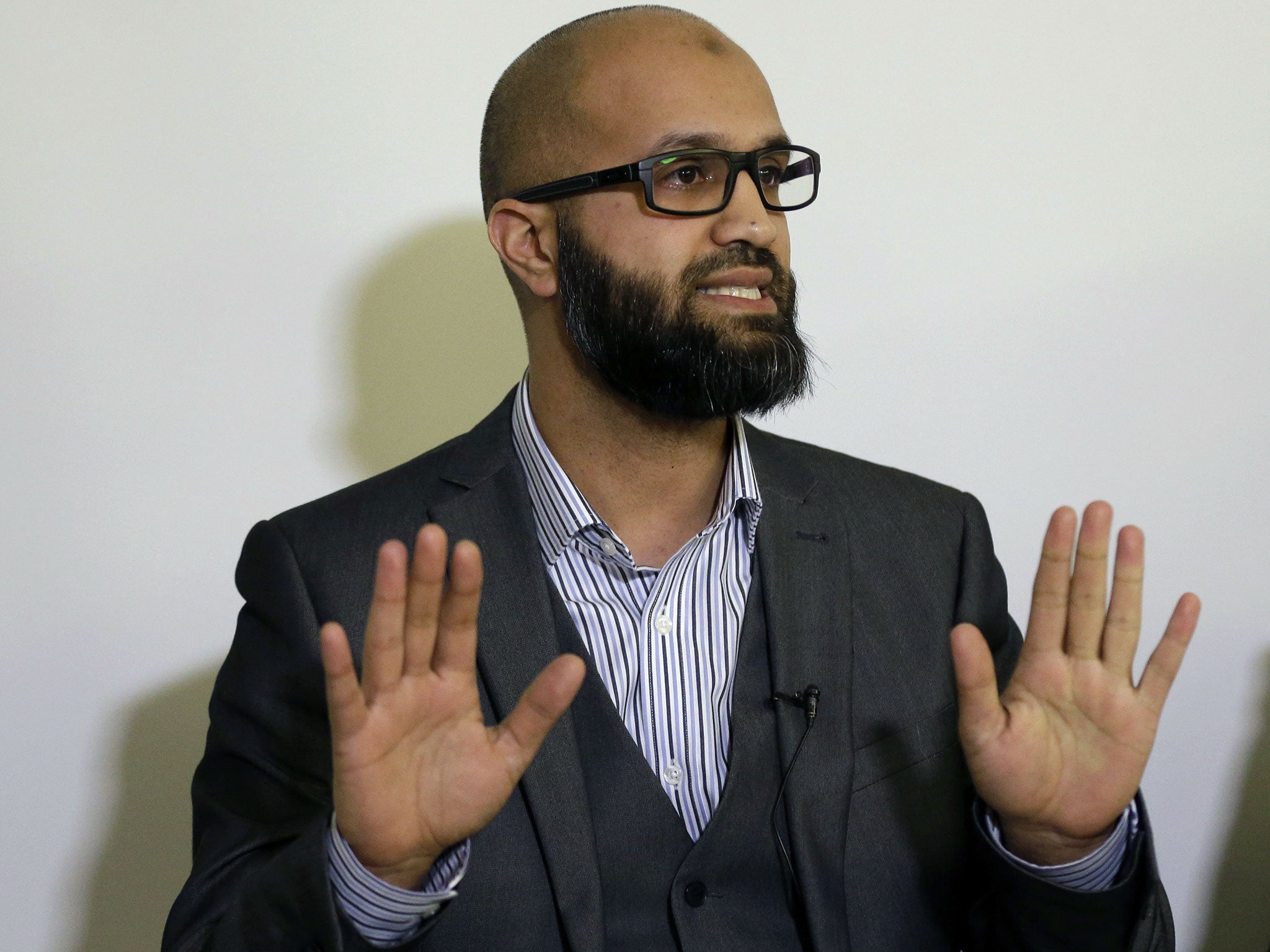Mohammed Emwazi: Man identified as Isis killer 'Jihadi John' 'stopped by MI5' while on safari holiday in Africa in 2010
The Isis militant known as Jihadi John has today been named in reports as Mohammed Emwazi

Your support helps us to tell the story
From reproductive rights to climate change to Big Tech, The Independent is on the ground when the story is developing. Whether it's investigating the financials of Elon Musk's pro-Trump PAC or producing our latest documentary, 'The A Word', which shines a light on the American women fighting for reproductive rights, we know how important it is to parse out the facts from the messaging.
At such a critical moment in US history, we need reporters on the ground. Your donation allows us to keep sending journalists to speak to both sides of the story.
The Independent is trusted by Americans across the entire political spectrum. And unlike many other quality news outlets, we choose not to lock Americans out of our reporting and analysis with paywalls. We believe quality journalism should be available to everyone, paid for by those who can afford it.
Your support makes all the difference.The British Isis militant known as Jihadi John has been identified in reports today as Mohammed Emwazi, from London.
In a lengthy article by The Washington Post, identifying the man suspected of appearing in videos showing the beheading of US and UK hostages, a 2010 report in The Independent is cited, which details claims that Emwazi was detained for 'days' and illegally interrogated by MI5 while on a safari holiday in Africa, before being let go.
British Muslims on safari 'stopped by MI5'
(from The Independent on 01/05/2010)
MI5 agents illegally interrogated British Muslims who were detained while on safari holidays in Africa, it was claimed yesterday.
The new allegations mirror cases first raised by The Independent last year in which the security service was accused of harassing and intimidating north London community workers who had returned from Somalia.
Now two British men from west London who visited Tanzania for a week-long safari in May last year say they were arrested and held for “days” in inhumane detention on the orders of MI5.
Abu Talib and Muhammad ibn Muazzam, both in their mid-20s, and a German friend travelling with them, allege they were threatened with beatings by members of Tanzania's security forces. After being refused entry to Tanzania they were returned to the Netherlands, where they say they were questioned by MI5 agents who accused them of having links to Islamic extremists.
On their return to the UK the next day, the men allege they were harassed by MI5, who warned them they were now on a terror watch list which prevented them travelling to any Muslim country. Another British citizen, Abu Omar, 19, says that in April 2009 his safari holiday to Kenya was interrupted when the house in which he was staying was raided by local security officers.
Mr Omar claims he was held and questioned for four days, also on the basis of intelligence supplied by MI5. He alleges that his interrogators threw a mobile phone at him which they said had his fingerprints on and was linked to phone calls made to Osama bin Laden. Back in London Mr Omar was further questioned by MI5, who took his fingerprints and photographs.

He told the human rights group Cageprisoners: "I was left in the airport without money, barefoot and my clothes in bin liners."
The new cases bear striking similarities to allegations made by six youth workers from Kentish Town who allege that they too were harassed and unlawfully interrogated after holidays abroad in 2008. Cageprisoners' executive director, Asim Qureshi, said: "The last seven years of the 'War on Terror' have seen the profiling and criminalisation of the Arab and Pakistani communities by UK authorities around the world. The policies implemented through counter-terrorism legislation and Prevent [the Government's strategy for combating extremism in the Muslim community] have been counter-productive as Muslim communities feel marginalised. Many Muslims feel besieged and the policies of Government have done nothing to temper that."
A government spokeswoman said the Security Service "operated within the law" and complaints about officers' alleged behaviour should be made to the independent commissioner who has the power to investigate allegations.